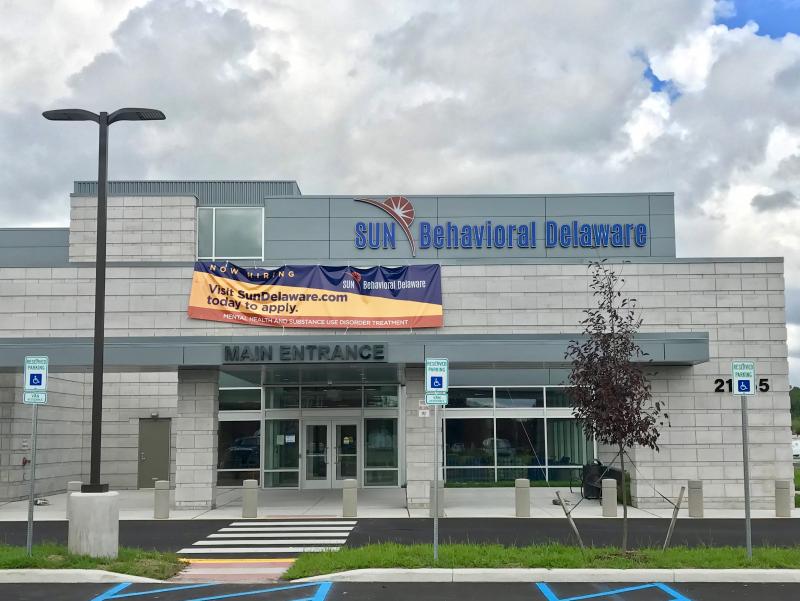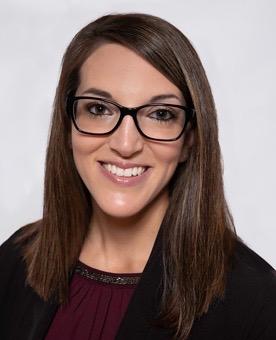Heroin raids, alcohol detox keeping SUN Behavioral busy
When police arrested 16 people recently in a wide-sweeping drug bust in Sussex County and Maryland’s Worcester County, they took more than 800 grams of raw heroin off the streets. Estimated value: $1 million.
The drug ring was nothing if not bold. One of the apartments where arrests were made and heroin seized was in the Savannah East complex on Kings Highway outside Lewes, barely more than a stone’s throw from Delaware State Police Troop 7 on Route 1.
In addition to taking heroin off the street, it’s believed the raids also sent many users to SUN Behavioral’s psychiatric hospital in Georgetown.
“We were at capacity over Memorial Day weekend,” said Erin Willis, SUN Behavioral director of business development. “I think the drug bust pushed a lot of people into our detox programs. Their supply had been hit; they were in withdrawal and they came to us to get medication. Of course we don’t just give them drugs, and it’s not up to them to dictate to our doctors what drugs they should be given. How they should be treated is up to our doctors to decide.”
While problems associated with heroin addiction were front and center over the holiday and are constantly in the news, Willis said during SUN Behavioral’s first eight months of operation in Sussex, a less-discussed problem has surprised officials there. “We’re actually seeing more alcohol detox issues here than opiate detox. We’re not sure why. Maybe people are coming here from other parts of the state to get farther away and not be seen.”
She said alcohol detoxification and problems associated with withdrawal have more medical complexities than detoxification from heroin. “People can suffer massive seizures while detoxing from alcohol. They have to be seen and observed by medical professionals. We keep a medical doctor on staff to monitor those situations. If they’re not supervised, those withdrawing from alcohol use can choke on their vomit and die. I know people in withdrawal from heroin may feel like they’re going to die, and I’m not downplaying that. But that’s not as likely as with alcohol detox. ”
In SUN Behavioral’s first eight months of operation since it opened in early October last year, the facility has been expanding more rapidly than had at first been expected. “We had a slow start-up, meaning we opened one unit at a time. Right now, 55 out of our total 90 beds are open. We expect all of them to be open by the end of June.”
The adult mental health unit expanded from inpatient treatment status, at the start, to a growing number of outpatient treatment sessions. “People who come to us with serious suicidal or homicidal thoughts are immediately assessed for treatment. If we consider them capable of harm to themselves or others, they will be admitted.”
Willis used the phrase ‘detox and co-occurring’ frequently in our conversation. That means a person who has mental health issues and is using alcohol or opiates to mask feelings of anxiety or depression. “Our first goal is to detoxify those people and then begin addressing their mental health needs.”
She said many adults who come to SUN Behavioral bring those conditions. An average inpatient stay is seven to 10 days, while outpatient treatment involves three hours of programs three days a week for two to four weeks. Outpatients sleep in their own beds at night. That’s the part of the adult unit, she said, that has expanded rapidly.
“We start with acute crisis stabilization, and then we’re constantly trying to step down to the appropriate level of care. No one leaves without a discharge plan and an appointment.”
She said rapid expansion has also resulted from listening to the community - “We were told we needed a geriatric unit sooner than later” - and from a steady flow of adolescents needing attention. “The adolescent units are the most steady and full units,” said Willis. “They are mostly mental health cases, not detoxification.”
More providers needed
Sun Behavioral already sees a need for more psychiatrists, therapists, nurse practitioners and nurses in the months ahead. “I think finding the right employees is a problem here and just about everywhere,” Willis said. The hospital is working with Del Tech’s nursing program and Beebe Healthcare’s School of Nursing to provide clinical rotations for their students to create a better supply of qualified practitioners and nurses.
“Beebe is also working on a residency program, and they have talked about partnering with us to have resident doctors do rounds here as part of a psychiatric rotation. Staffing is our biggest thing right now. We need more providers.”
As part of her community outreach, Willis said she has been talking with teachers, counselors and principals about the barriers to treatment their students face, and their needs. In particular, she said she has been working with Indian River and Cape Henlopen schools. “They tell us they need treatment options for what I call the littles - starting at age 5. So now we plan to have an inpatient and outpatient unit for them starting in August or September, after schools reopen for the next year.”
Willis has been in the mental health field for about 10 years. “I started out in 2010 in Arkansas, and I can tell you, things have improved a lot. There was more of a stigma attached with mental health issues back then. There’s still somewhat of a stigma, but nowhere near as much as there was. People are more accepting now. Celebrities talking about it openly has helped.”
She has found Delaware a very progressive state in terms of mental health. “I’ve been here exactly one year, and I've never seen a state that cares more for helping its people with mental health and addiction issues. There are many programs here to get treatment and even state programs to pay for those programs. I didn’t see that in Arkansas or in Columbus, Ohio, where I worked before. I tell people, if you don’t believe me, go see for yourself what it’s like elsewhere.”


























































